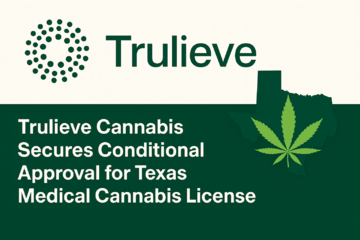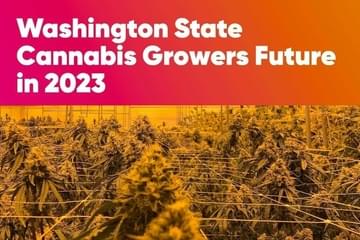
BIPOCANN Career Series: How to Get Into Cannabis Advocacy
Published on 11/8/22
When it comes to the cannabis industry, getting into the industry is the hardest part. We've teamed up with, BIPOCANN, and their network of businesses that are working to shape a more accessible and profitable legal cannabis industry. Here's how you can get into cannabis advocacy.
4 Career Paths in Cannabis Advocacy
Are you passionate about cannabis and want to make a difference? Advocacy may be the career path for you. The industry continues to evolve, with new laws and regulations passing faster than we can keep up.
As a cannabis advocate, you'll work to shape these laws and ensure they protect the rights of cannabis users and industry workers. Did you know that cannabis employs more than 428,000 full-time workers?
"This industry is unique as it is emerging yet has the ability to be an umbrella for so many industries," says Belicia Royster, President of Social Equity Empowerment Network.
Careers in cannabis are expanding as fast as the industry itself. Here are some of the most popular positions in advocacy.
Cannabis Attorney
As the industry grows, so too does the need for legal representation. Cannabis attorneys help their clients navigate the confusing world of cannabis law. As an attorney, you might represent any of the following:
- Cannabis financial institutions
- Criminal defense
- Cultivators
- Dispensaries
- Employees
- Employers
- Environmental law
- Medical professionals
- Patients
- Product liability
- Scientists
Do you need a college degree or certification?
With the number of people working in cannabis, it's no wonder the demand for attorneys is growing! You need a law degree to become an attorney and pass the bar exam in your state or any state you plan on practicing. As a public defender, a great place to start with law and advocacy.
Jobs you could transition to beyond this role
By helping those with cannabis-related offenses, you can learn a lot about the industry and the people involved. As you advance your career, a background as a public defender can open doors to higher-paying positions in private law firms. Or you could start your own practice to help those in the cannabis industry.
You can also become involved in cannabis-specific organizations, like NORML or the National Cannabis Industry Association, to improve your knowledge of the industry and network with other professionals.
A benefit of getting your law degree is that it's easy to transition to another area of law if you find that cannabis isn't for you. As a trained lawyer, you can also become a lobbyist, working to influence government officials to create laws favorable to the cannabis industry. Lawyers have plenty of opportunities, such as working in family law, real estate, or environmental law.
Day-to-day responsibilities of a cannabis attorney
Your day-to-day depends on the type of law you practice. You may work in an office full-time, or you could travel to meet with clients or appear in court. Networking is essential, as you'll need to build relationships with clients, other attorneys, and judges. These connections will be essential to advancing your career.
Cannabis Consultant
Cannabis consultants help businesses navigate the ever-changing landscape of cannabis law. They advise their clients on the following:
- Cannabis product development
- Complying with state and local laws
- Cultivation and manufacturing
- Financial planning
- How to start a cannabis business
- Obtaining licenses and permits
- Marketing and advertising
Do you need a college degree or certification?
To become a cannabis consultant, you need experience in the cannabis industry and a solid understanding of local laws. It would be best if you were well-connected, as you'll be relying on your network to help you find clients. Experience, knowledge, and connections can help you get into this part of the cannabis industry, but a degree will improve your chances of becoming a consultant.
What other industries best translate to this role?
Consulting is an excellent area to transition to private practice if you have a law degree. You can use your law knowledge to help cannabis businesses comply with changing regulations. A business degree can also be helpful in this area, as you'll need to understand financial planning and marketing.
Many consultants specialize in an area such as helping applicants who speak English as a second language navigate the cannabis industry. This can be helpful if you want to use your bilingual skills to enter the industry. Another possibility is to specialize in working with veterans who want to enter the industry.
Jobs you could transition to beyond this role
As you advance in your career, you could move into management consulting. In this role, you'll work with businesses to help improve their operations. You'll need to have a deep understanding of the cannabis industry and be able to think strategically.
Day-to-day responsibilities of a cannabis consultant
- Attending industry events
- Meeting with clients
- Researching cannabis laws
- Writing reports
Cannabis Policy Analyst
Policy analysts research, write and speak about the impact of cannabis policy on public health, the economy, and social justice. They work with government officials, businesses, advocacy groups, and the public to shape cannabis policy. In the changing landscape of cannabis, policy analysts play a critical role in ensuring that the rights of consumers and businesses are protected.
Despite the industry growth, Morgan Fox, the political director for NORML, explains the ongoing need for policy change:
"Yet, outdated federal laws define these same people as criminals, and as a result, they are frequently denied access to banking services, housing, education, international travel, and citizenship. It is long past time for Congress to end prohibition and start treating this robust regulated market like any other industry."
You can also work as a policy analyst for the government. State cannabis agencies that have legalized cannabis need policy analysts to develop and implement regulations.
The demand for policy analysts will continue to grow as more states legalize. Many skills are transferable, so it's an excellent career choice if you're looking for job stability and growth potential.
Do you need a college degree or certification?
To become a policy analyst, you need a bachelor's degree in public policy, economics, or a related field. You can work your way into this position through internships or entry-level jobs with government agencies, think tanks, or advocacy groups. Once you have a few years of experience, you can move up to a policy analyst position with a cannabis-focused organization.
Jobs you could transition to beyond this role
A policy analyst position is an excellent stepping stone for a public policy or political career. Your experience in the cannabis industry will give you a unique perspective on the industry's issues.
You can also use your policy analysis skills to transition to a different public policy or advocacy area. Industries that can use your skill set include environmental policy, healthcare policy, and technology policy.
Day-to-day responsibilities of a cannabis policy analyst
Your day-to-day activities will vary depending on the organization. You'll likely be researching cannabis policy, writing reports and proposals, and speaking to the public about the impact of policy changes.
As a policy analyst, you can directly impact how the cannabis industry is regulated. If you're passionate about social justice, you can use your skills to ensure that cannabis policy protects vulnerable populations.
Cannabis Marketing and Branding Specialist
Cannabis marketing and branding involves developing and executing marketing plans for cannabis businesses. Specialists understand the consumer and how to reach them through various marketing channels. They also know the ins and outs of advertising regulations and nuances. In Massachusetts, for instance, marketing regulations are complex, with age restrictions, specific warnings, and discretions.
Do you need a college degree or certification?
To become a cannabis marketing and branding specialist, you ideally need a bachelor's degree in marketing, advertising, or a related field. The alternative is to have significant experience in this role for other industries.
Jobs you could transition to beyond this role
Skills in cannabis marketing can transfer to other industries, of course. Alcohol, tobacco, and pharmaceuticals could be easy transitions as they have similar challenges and opportunities.
Are you looking for a cannabis marketing job with growth potential? Consider working for a cannabis-focused advertising agency, which is in high demand as the industry grows.
"I think there are opportunities in technology, accounting, bookkeeping, application development, insurance, risk management, design, textile, health, beauty, and much more," suggests Royster.
Day-to-day responsibilities in cannabis marketing and branding
Your everyday responsibilities depend on the role you play. For example, if you work in advertising, you'll create ad campaigns, research target markets, and manage ad budgets. If you're more focused on public relations, you'll write press releases, pitch stories to the media, and arrange interviews.
No matter your specific focus, you'll need to be creative, adaptable, and organized. Excellent written and verbal communication skills go a long way.


















